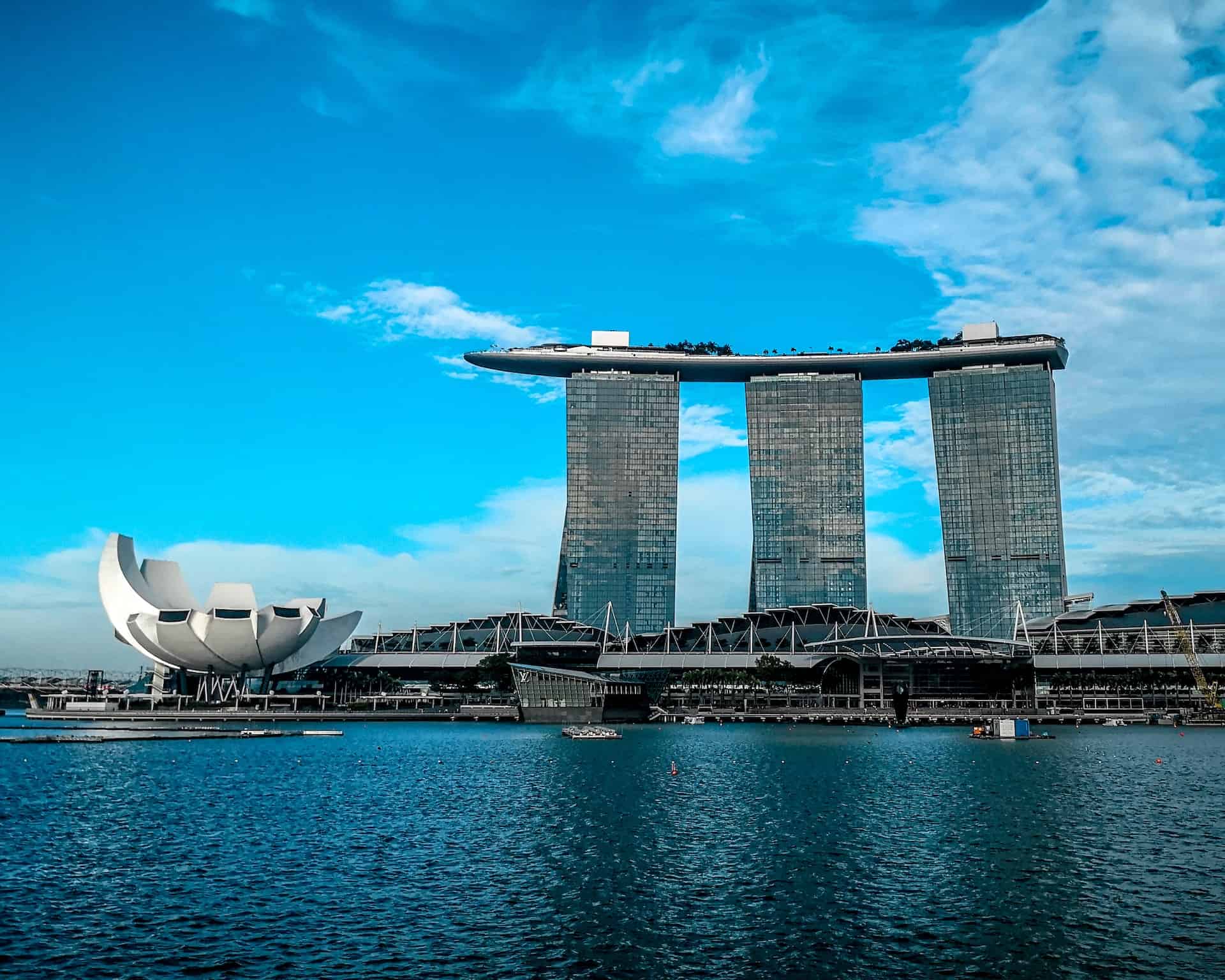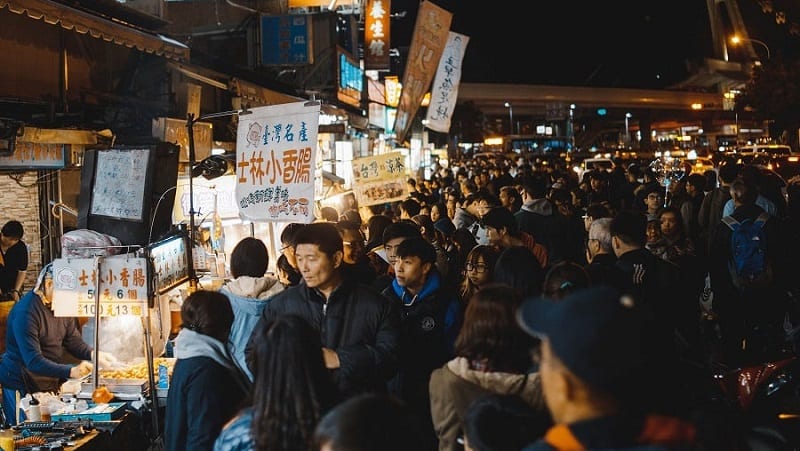Culture & Dos and Don'ts in Taiwan

Most Taiwanese culture is an odd fusion of traditional Chinese practices, modern business, technological concepts, and a trace of Japanese colonial influence. People will likely be surprised and charmed by how differently the Taiwanese and their Chinese neighbors act if they expect stereotypically “Chinese” experiences like those you can have in mainland China or even Hong Kong. First of all, Taiwanese people are undoubtedly some of the friendliest people in Asia, if not the whole world. Most foreign visitors are amazed by the level of hospitality from the moment they arrive. This travel guide will show you some Taiwan customs and traditions & dos and don’ts when visiting.
Tour Suggestions: Coming Soon
Do's and Don'ts in Taiwan
Being foreigners, we should take extra care to think before we act because some of our actions might offend people from other cultures. Even though they may overlook most of your errors, it would still help if you know some of Taiwan etiquette. Here are some things to know before going to Taiwan that might help you avoid possible uncomfortable situations and to be familiar of the thing not to do in Taiwan.
Take Shoes Off
Do take off your shoes when entering someone's home, and place the shoes outside in the provided area.
Use Both Hands
Use both hands when presenting cash, a gift, a package, or a document. To do so is courteous and symbolizes that what you give is an extension of your personality or respect.
Learn some greetings
It is greatly appreciated if you learn some Chinese
Finish Your Food
Do Eat all of your food. Avoid wasting it. Please don't buy anything or consume a large serving that you throw away. It's disrespectful.
Escalator Etiquette
For the Taiwanese etiquette in escalators, do keep to the right side of the escalator to give those who want to run up or down access to the left side.
Watch Where You Sit
Do leave the dark blue seat in the MRT empty. These seats are reserved for people in need (elderly, pregnant women, people with toddlers, etc.)
Transport Rules
Do not eat food, chew gum, or drink water on public transport.
No Politics
Refrain from discussing the political situation between Taiwan and China. Some people will take offense if you suggest Taiwan is part of China, while others will take offense if you say Taiwan is a separate nation.
Superstitions
Do not mention the word "death" or the number "4" in public spaces like hospitals. Since Taiwanese people are quite superstitious, your statement would offend them.
Business Manners
Never put a recently acquired business card in your hip pocket (or in your wallet, then in your hip pocket). However, it is not offensive to put it in your front pocket. It is also best to read it before putting it in your wallet to demonstrate your interest in what the person does.
Food Manners
Never leave your chopsticks standing up in a bowl of leftovers. This is offensive because it represents a sacrifice for the dead. When visiting temples, you'll frequently see sticks inserted into bowls.
Gift Rules
Keep presents sealed until you are alone with the person who gave them to you. A list of things NOT to give your Taiwanese counterpart: 1. A handkerchief. You are implying that they may soon have a reason to cry. 2. Shoes for the elderly, as it means they are headed to heaven 3. A clock, which represents a timely death 4. White flowers. They are used at funerals. 7. Don't give items of four, as it is an unlucky number
Where To Stay?
HostelWorld– There are many options for accomodation inside Taiwan, Check Hostelworld for the best options. If you want to meet other nomads or travelers, hostels are the way to go.
Customs & Traditions
Facing up to “Face”
Although face, the fine line between being polite and being proud of yourself in public is a big deal in this country, it’d sure be helpful if you would remember the Taiwanese customs and traditions. In many other parts of Asia, foreigners are naturally considerate and sensitive to others and are unlikely to encounter serious problems. Many Taiwanese have traveled, studied, or worked abroad, so they have some experience with “Western” ways of doing things.
People generally dislike it when you criticize them, especially in front of others, which usually results in a “loss of face.”
Physical Gestures and Greetings

Most people in Taiwan and other Asian nations wave and call to one another with their palms facing the ground. Giving gifts or other tokens of respect with both hands demonstrates that you are doing so without any reservations and as a complete expression of who you are. The Taiwanese people have this as one of their customs.
When exchanging business cards, it is polite to read the other person’s name and job title and, if appropriate, to compliment them on where they are on the career ladder. Even if you’re trying to secure them, you should avoid putting cards in your wallet or pockets immediately because this could be interpreted as a lack of interest.
Bad omens
Visitors will notice two of these the most: the pervasive belief in bad omens and the lengths many Taiwanese will go to avoid them. Death or disaster-related comments or jokes are almost sure to cause audible cringes from those nearby and make some people noticeably tense. For instance, many Taiwanese may believe that a seemingly innocent statement like “she’s going to get herself killed walking in front of all that traffic” will occur. This is not to say that cautionary advice is improper; instead, it means that such advice should not be followed by a description of what might happen if it is disregarded.
It helps to understand why so many Taiwanese refuse to write last wills because they believe that doing so could hasten their deaths, and actions that might suggest that something untoward might happen are widely avoided in Taiwan. Giving someone a handkerchief, for instance, is not advised because it indicates that they might be about to cry. Similarly, items associated with death, like white flowers, which are required at funerals, should be avoided. It’s best to pick out other colors to give someone flowers. Even phrases or words that invoke thoughts of death can be offensive.
Most Taiwanese culture is a strange mix of old Chinese customs, new business and technology ideas, and a little Japanese colonial influence.
Common Questions about TAIWAN CULTURE DOS AND DONTS
– Do greet people with a slight bow or handshake.
– Do remove your shoes when entering someone’s home.
– Do try to learn a few basic Mandarin phrases.
– Don’t touch someone’s head or pat them on the back as it is considered impolite.
– Don’t stick your chopsticks vertically into a bowl of rice, as it symbolizes death.
– Don’t point with your finger, instead, gesture with an open hand.
Yes, it is highly important to show respect to Taiwanese elders. They are highly regarded in the culture, and it is customary to address them with appropriate terms of respect, such as “Uncle” or “Auntie” followed by their last name. Additionally, when dining with elders, it is polite to serve them first and wait for them to begin eating before you start.
Rude gestures include putting your arm around someone’s shoulder, winking, and pointing with your index finger. You could hold up your hand to point. Tapping your foot or making other twitchy gestures are considered impolite.
palms outward and moving back and forth in front of the face indicates “no”.
Bring loose, airy clothing that isn’t overly exposed. Ideal clothing is light, machine-washable cotton that is not very delicate.
Western looks are highly fashionable and popular in Taipei.
Wearing shorts is acceptable, but bear in mind that you will need to cover your legs and be more modest when you visit religious temples.
Yes, it is highly important to show respect to Taiwanese elders. They are highly regarded in the culture, and it is customary to address them with appropriate terms of respect, such as “Uncle” or “Auntie” followed by their last name. Additionally, when dining with elders, it is polite to serve them first and wait for them to begin eating before you start.
Bring loose, airy clothing that isn’t overly exposed. Ideal clothing is light, machine-washable cotton that is not very delicate.
Western looks are highly fashionable and popular in Taipei.
Wearing shorts is acceptable, but bear in mind that you will need to cover your legs and be more modest when you visit religious temples.
Prior to choosing the ideal time to visit Taiwan, you ought to think about your itinerary. It all depends on what you want to see and do during your visit .
The best months to visit for general travel are September, October, and November. For those who enjoy island hopping and tropical beaches, the summer (July-September) is the best time to visit. Spring (April-June) is the best time to visit for culture and nature. But winter (January-March) is great for visiting Taipei also. Actually, there’s never a bad time to visit Taiwan because the country offers year-round delicious food, breathtaking scenery, and a bustling urban scene.
Disclosure: Please note that some of the links above may be affiliate links, and at no additional cost to you, I earn a commission if you make a purchase.
Start Planning Your Taiwan Trip Now!
Book Your Flight:
Use Skyscanner to find a cheap flights. A travellers favorite way to book flights, as it searches websites and airlines around the world with one click.
Book Your Bus or Transportation Within Taiwan:
There are two ways to book your transporation, ask your hotel or hostel, go to the local bus terminal, or book online, for a less stressful trip using EasyBook or 12go.asia
Book Your Accomodation:
Find the best hotels or hostels at HostelWorld, Booking.com, Agoda.com. Perks include with no upfront payment. Pay when you check out and Free cancellations.
Dont Forget Your Travel Insurance:
Two popular choices are SafetyWing and WorldsNomads. A traveler should buy traveler’s insurance to protect themselves against unexpected events such as trip cancellations, medical emergencies, and lost or stolen baggage. It provides peace of mind and financial protection in case of unforeseen circumstances.
Useful Apps?
Uber/TaiwanBus- Local Transportation
Food Panda/UberEats – Food Delivery
Whatsapp/Wechat- Communication
Want More Information On Taiwan?
Be sure to check out my nomad travel guide on the Taiwan for even more tips.
Disclosure: Please note that some of the links above may be affiliate links, and at no additional cost to you, I earn a commission if you make a purchase.
















